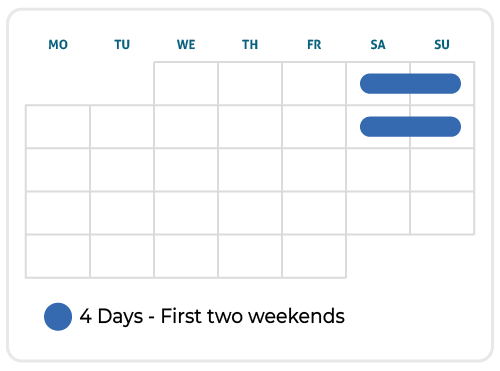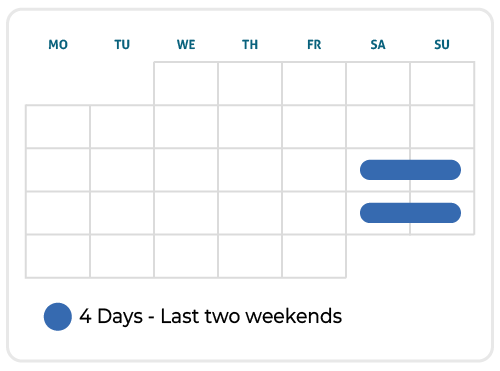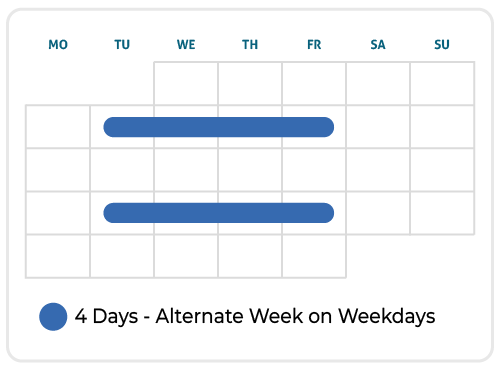CompTIA Cloud Essentials Training Program Overview city83647
You're a manager, finance analyst, or sales executive who often gets frozen out of strategic discussions when the conversation shifts to IaaS, PaaS, or OpEx vs. CapEx. You understand that cloud strategy is critical, but without formal training, you lack the standardized vocabulary to contribute effectively. This disconnect can result in business goals being set in a vacuum while technical teams implement solutions without proper alignment. Our CompTIA Cloud Essentials Training Program bridges that gap. Designed by consultants with experience in large-scale, multi-crore cloud migrations in Quebec, RI enterprises, this course equips non-technical professionals with high-level insight to make informed decisions and ask the right questions. Unlike courses that focus solely on technical commands, our program emphasizes the strategic, financial, and compliance pillars of cloud adoption. You'll learn to: Analyze cloud TCO (Total Cost of Ownership) and optimize spending. Differentiate between deployment models (public, private, hybrid) using real-world risk profiles in Quebec, RI. Understand the security responsibilities critical for contracts, aligned with CompTIA Security Plus principles. The certification is proof - but the real value lies in being able to contribute immediately to cloud strategy, budgeting, and vendor negotiations with confidence. This program is tailored for busy professionals across Quebec, RI. You'll receive condensed, focused training, along with: Ready-to-use cost analysis templates Risk assessment frameworks you can apply immediately 24/7 expert support to clarify conceptual doubts Gain the practical knowledge and CompTIA certification insight to transform your influence in strategic cloud discussions. Easily access your learning platform through CompTIA login, explore other CompTIA courses, and understand the CompTIA certification path. Prepare effectively for CompTIA exams and leverage opportunities like CompTIA discount codes for cost-effective certification.
CompTIA Cloud Essentials Training Course Highlights city83647
Vendor-Neutral Foundation
Gain a standardized understanding of cloud concepts that is applicable across AWS, Azure, GCP, and private cloud solutions, preventing vendor lock-in of your knowledge.
Taught by Business Consultants
Learn from professionals who apply cloud business metrics daily, focusing on ROI, governance, and contractual risks, not just technical details.
Focused 1-Week Schedule
Master the concepts rapidly with a concise training schedule designed to minimize time away from your core professional duties.
Performance-focused Training
Concentrate solely on the business, financial, and technical concepts required to pass the single, critical exam.
Exhaustive Practice Materials
Sharpen your knowledge with 500+ realistic, scenario-based practice questions that mirror the exam's focus on business applicability.
24x7 Expert Guidance & Support
Eliminate conceptual confusion immediately with access to industry experts available around the clock to address high-level business queries.
Corporate Training

Ready to transform your team?
Get a custom quote for your organization's training needs.
Upcoming Schedule



Skills You Will Gain In Our Cloud Essentials Training Program
Business Value & TCO Analysis
You will learn to move beyond unit costs, calculating the true Total Cost of Ownership (TCO) for cloud migration and accurately assessing the strategic ROI.
Cloud Service Model Differentiation
Master the practical differences between IaaS, PaaS, and SaaS, and learn to select the right model based on business control requirements and cost targets.
Risk & Compliance Assessment
Identify the critical security, privacy, and regulatory risks (e.g., data residency concerns in Quebec, RI) associated with various cloud models.
Cloud Governance & Operations
Understand the essential elements of cloud governance, billing management, capacity planning, and how to structure a competent cloud operations team.
Technical Terminology Translation
Confidently translate core technical concepts (virtualization, storage types, networking) into clear business language for effective stakeholder communication.
Vendor Contract Negotiation
Gain insight into the financial and operational clauses of major cloud contracts, enabling you to negotiate favorable terms and avoid unnecessary vendor lock-in.
Who This Program Is For
IT Sales & Marketing Staff
Project Managers (Non-Technical)
Business Analysts
Financial Analysts/Controllers
C-Suite/Senior Management
Contract and Procurement Managers
If you lead projects and meet PMI's mandatory experience requirements, this program is engineered to get you certified.
CompTIA Cloud Essentials+ Certification Training Program Roadmap
Why Get CompTIA Cloud Essentials Certified?
Stop Getting Filtered Out of High-Level Discussions
Get the vocabulary and conceptual understanding to be taken seriously by technical leadership.
Unlock Financial and Contractual Leverage
Understand the true costs and risks associated with cloud adoption, improving your company's ROI.
Validate Your Foundational Cloud Literacy
Gain a globally recognized, vendor-neutral credential, a mandatory check box for many non-technical cloud roles.
Eligibility & Prerequisites
The CompTIA Cloud Essentials certification is deliberately a foundational-level credential with zero mandatory prerequisites. Its entire purpose is to be the first step for those who need high-level cloud fluency.
No Formal Experience Required: There are no minimum years of IT experience, no specific role requirements, and no mandatory prior certifications.
Recommended Baseline: CompTIA advises having at least 6-12 months of general IT experience to grasp the context, but this is a guideline, not a strict requirement.
The reality: If you can competently analyze a P&L statement or understand basic contract terms, you have the necessary intellectual foundation. Our program assumes zero prior technical cloud knowledge.
Course Modules & Curriculum
Lesson 1: Scope Management Systems
Scope management is the backbone of successful project execution - and a key topic covered in every Project Management Professional course online and in the PMP exam questions. Learn to define project boundaries with precision and prevent costly scope creep.
Lesson 2: Schedule Development & Control
Time management is one of the most heavily weighted areas in the PMP exam content outline. This lesson trains you to build and control project schedules that meet deadlines without sacrificing quality.
Lesson 3: Cost Management & Earned Value
Develop accurate cost estimates using proven methodologies and track real project performance through Earned Value Management. Learn to create meaningful budgets, analyze variances, and communicate financial status to stakeholders in terms they understand and act upon.
Lesson 1: Risk Management Framework
Identify what can derail your projects before it happens and build comprehensive response strategies. Master both qualitative and quantitative risk analysis techniques, including Monte Carlo simulations and decision trees that enable data-driven risk decisions.
Lesson 2: Quality Management Systems
Build quality into your processes rather than inspecting it later. Learn the difference between quality planning, assurance, and control. Master quality tools like control charts and Pareto analysis to drive continuous improvement and prevent costly rework.
Lesson 3: Procurement & Contract Management
Procurement is a key area of the Project Management Professional exam and essential to professional project delivery. Learn to manage vendor contracts, conduct negotiations, and select the right contract types. This PMP course online module teaches practical approaches to vendor evaluation, risk allocation, and performance monitoring, ensuring your projects stay on schedule and within budget.
Lesson 1: Project Execution Leadership
Lead project teams through successful delivery while managing resources, resolving issues, and maintaining momentum. Learn to direct project work effectively, acquire and develop team members, and create reporting systems that inform rather than overwhelm stakeholders.
Lesson 2: Monitoring & Control Systems
Implement control systems that catch problems early and enable corrective action. Master integrated change control procedures, performance measurement techniques, and variance analysis methods that keep projects on track and stakeholders informed.
Lesson 3: Agile & Hybrid Approaches
Modern project management requires agility. This PMP certification course explores agile, predictive, and hybrid delivery approaches - helping you understand when and how to apply each. Learn Scrum ceremonies, Kanban flow metrics, and hybrid governance techniques that integrate flexibility into traditional structures. These topics are a major part of the current Project Management Professional exam content outline, making this lesson essential for every PMP-certified professional.
Lesson 1: Project Closing & Professional Responsibility
Execute proper project closure procedures and understand your ethical obligations as a certified project management professional. Learn to capture lessons learned effectively, manage contract closure, and navigate ethical dilemmas using the PMI Code of Ethics.
Lesson 2: Exam Strategy & Practice
Develop test-taking strategies specifically designed for the PMP exam format. Learn question analysis techniques, time management strategies, and how to approach situational questions that test your judgment rather than just knowledge recall.
Lesson 3: Final Review & Certification Readiness
This capstone lesson brings everything together. You'll review every process group, knowledge area, and agile concept included in the PMP course online curriculum. Our instructors guide you through final assessments, identify weak areas, and ensure full exam readiness.
Lesson 1: The Cloud Business Mandate
Move past the hype and understand the real business drivers that compel city83647 enterprises to adopt cloud: agility, reduced CapEx, global reach, and cost optimization. Learn how to communicate these drivers effectively to stakeholders, demonstrating strategic insight aligned with CompTIA certification best practices.
Lesson 2: Cloud Computing Concepts & Models
Master the definitions of Public, Private, Hybrid, and Community Cloud. Learn to differentiate between IaaS, PaaS, and SaaS based on business control and operational impact rather than just technical layers. This lesson aligns with the foundational knowledge expected in CompTIA Cloud Essentials and CompTIA Security Plus courses.
Lesson 3: The Financial Shift (CapEx to OpEx)
Decipher the shift from capital expenditure to operating expenditure. Learn to utilize this financial model for budgeting, forecasting, and maximizing cloud ROI in a corporate setting.
Lesson 1: Migration Strategy & Challenges
Understand the practical steps in a cloud adoption roadmap. Identify the common non-technical roadblocks in city83647enterprises: internal resistance, skill gaps, and legacy system compatibility.
Lesson 2: Cloud Sourcing and Contract Essentials
Examine vendor relationships and sourcing options. Learn the critical questions to ask when negotiating contracts, emphasizing SLAs, data ownership, exit strategies, and risk mitigation. These insights are key for those pursuing the CompTIA certification path and complement lessons from CompTIA Security Plus.
Lesson 3: Service Provisioning and Automation Overview
Gain a high-level understanding of how cloud resources are provisioned and why automation matters. Focus on the business value of speed, consistency, and error reduction provided by DevOps principles.
Lesson 1: Security Risks & Shared Responsibility
The most critical lesson for non-technical staff. Master the Shared Responsibility Model - clearly define what the provider secures versus what your organization is financially and legally responsible for.
Lesson 2: Cloud Compliance and Audit
Address specific regulatory concerns in city83647 (e.g., banking, telecom). Understand the role of certifications (ISO, SOC, etc.) and how to ensure your cloud solutions meet mandatory audit requirements.
Lesson 3: Business Continuity and Disaster Recovery
Translate RPO and RTO into business continuity strategy. Understand how cloud enables cost-effective and rapid disaster recovery and why these plans must be formally documented and tested.
Lesson 1: Cloud Infrastructure Overview
Gain conceptual clarity on the core infrastructure: virtualization, networking (VPCs), and storage. Focus on how these components enable scalability and reliability from a service perspective.
Lesson 2: Service Management in the Cloud
Understand how ITIL/ITSM concepts adapt to the cloud. Focus on change management, incident response, and problem management within a dynamic cloud environment.
Lesson 3: Performance, Optimization, and Monitoring
Examine how cloud monitoring tools provide visibility into service utilization and cost. Learn to use key metrics (e.g., latency, utilization) to justify capacity changes and cost optimization efforts.
Lesson 1: Conceptual Synthesis and Review
Consolidate knowledge across all business, financial, and operational domains covered in previous modules. Address final high-level questions on cloud governance, risk assessment, and strategic decision-making. This review ensures readiness for the CompTIA certification exam and aligns with the CompTIA Cloud Essentials certification path.
Lesson 2: Exam Strategy and Time Management
Develop targeted strategies for tackling the CLO-002 scenario-based questions. Learn to quickly differentiate between business, technical, and financial answers - a critical skill for passing CompTIA exams efficiently.
Lesson 3: Final Mock Exam and Readiness Check
Complete final full-length practice assessments under timed conditions. Review knowledge against the official exam objectives to ensure you are psychologically and conceptually prepared to pass.





